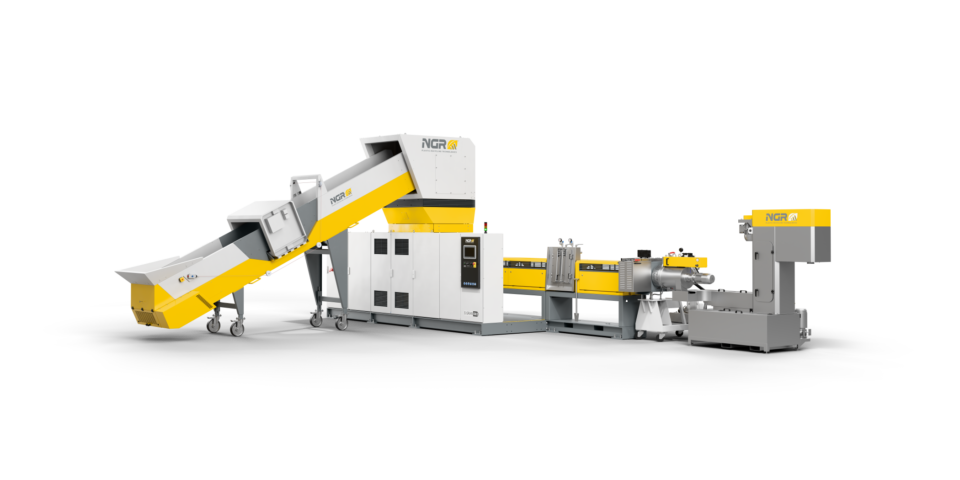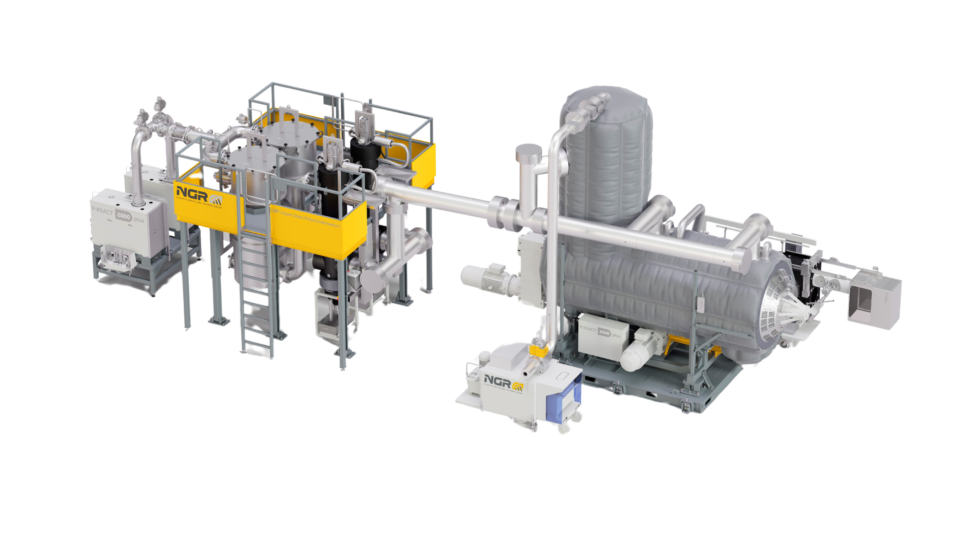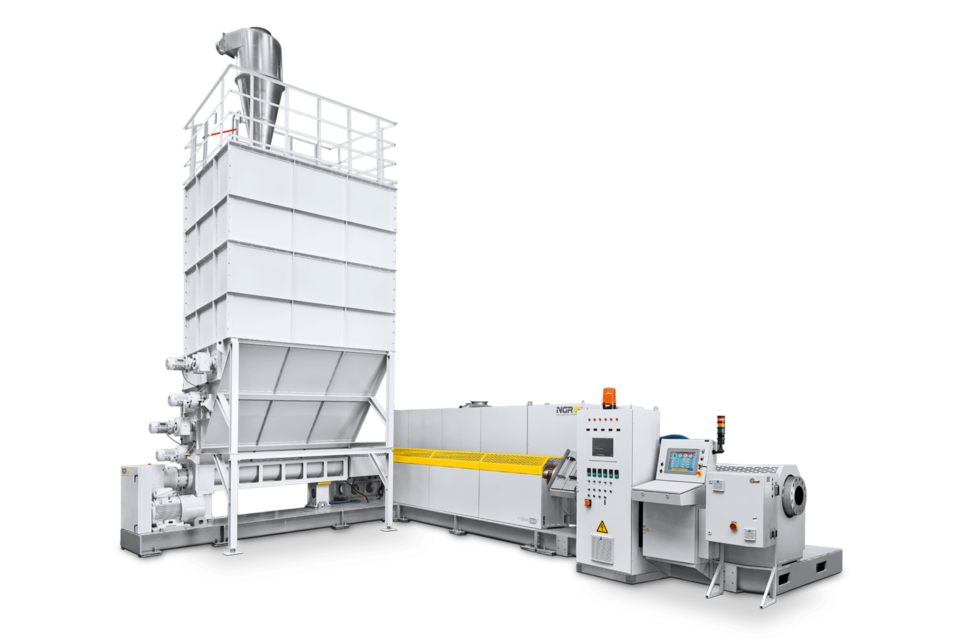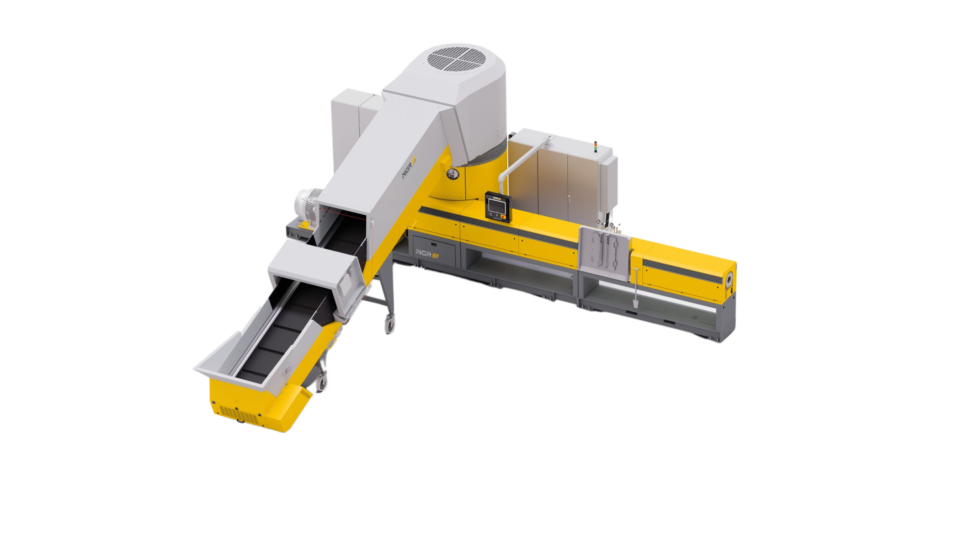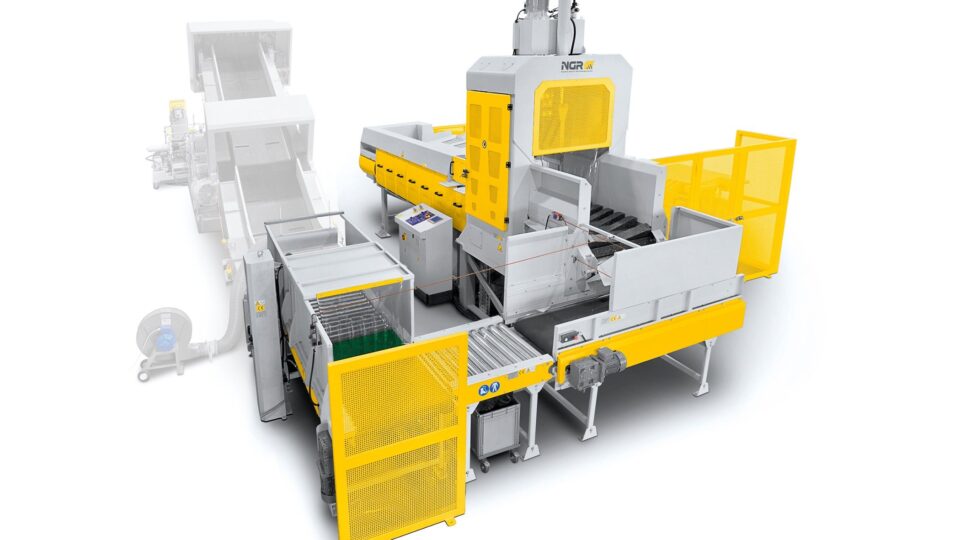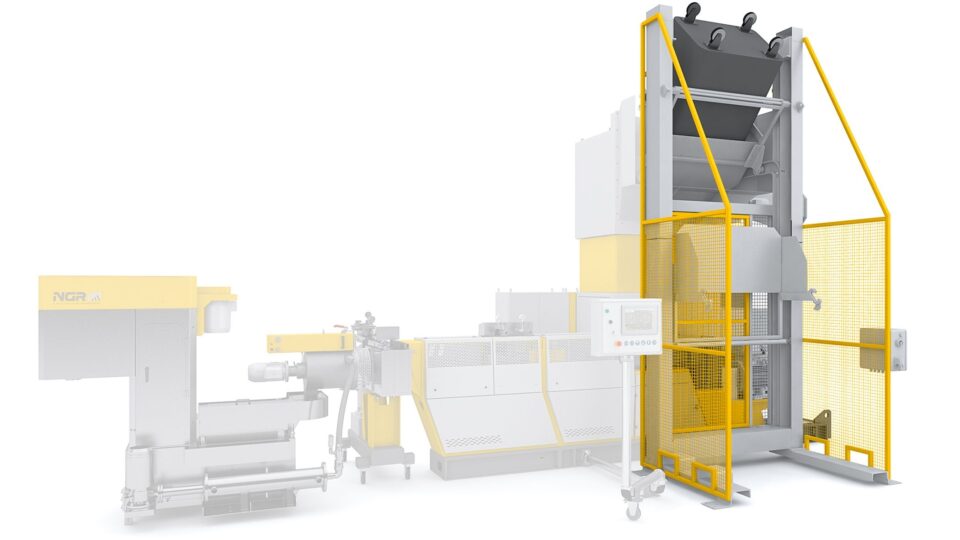The NGR world of products
NGR’s recycling technologies offer maximum efficiency and sustainability for the plastic recycling industry. Our powerful machines stand out for ease of use, flexibility in the application, and zero-waste technology for highest economic efficiency to support for a better future.
Filter Products
Add-Ons
Filter
Degassing
Feed-in
Pelletization
Test equipment
Filter
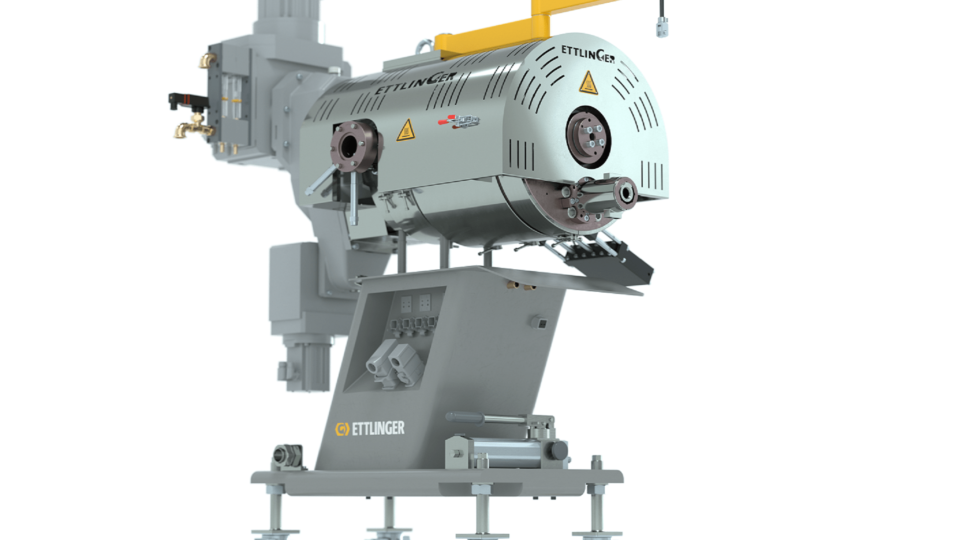
High-performance melt filter
The continuous melt filters in the ERF series are suitable for a wide range of moderate and highly contaminated polymers and provides a pressure constant operation, long screen lifes, very low melt losses and a compact design. By the permanently rotating filter drum foreign particles are being constantly and effectively removed, depending on the application ERF melt filters enables throughputs from 150 to 10,000 kg/h.
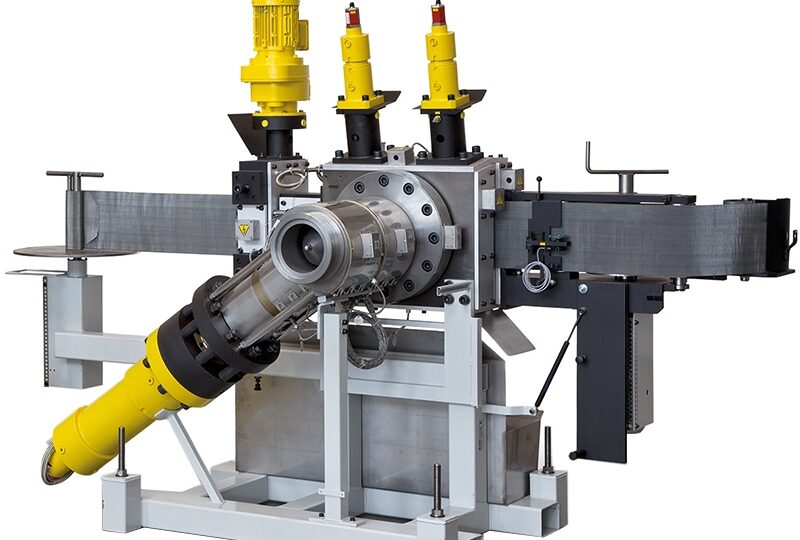
Band melt filter
For high contamination at high throughput rates. With the lowest melt losses and low filter costs, fully automatic operation ensures excellent filtration results. It is used particularly for post-consumer plastics.

4K back-flush filtration
For heavily contaminated materials. In contrast to the standard backflush screen changer with 2 screen cavities, this system is equipped with 4 screen cavities. The double filtration surface with the same frame size results in a longer filter life.

Back-flush screen changer
For heavily contaminated materials. The hydraulically operated double-piston screen changer filters the melt in a process-controlled and continuous manner. The integrated backwash device automatically cleans the screens. The number of back-flushes and the related service life of the screens depend on the degree of contamination of the material.
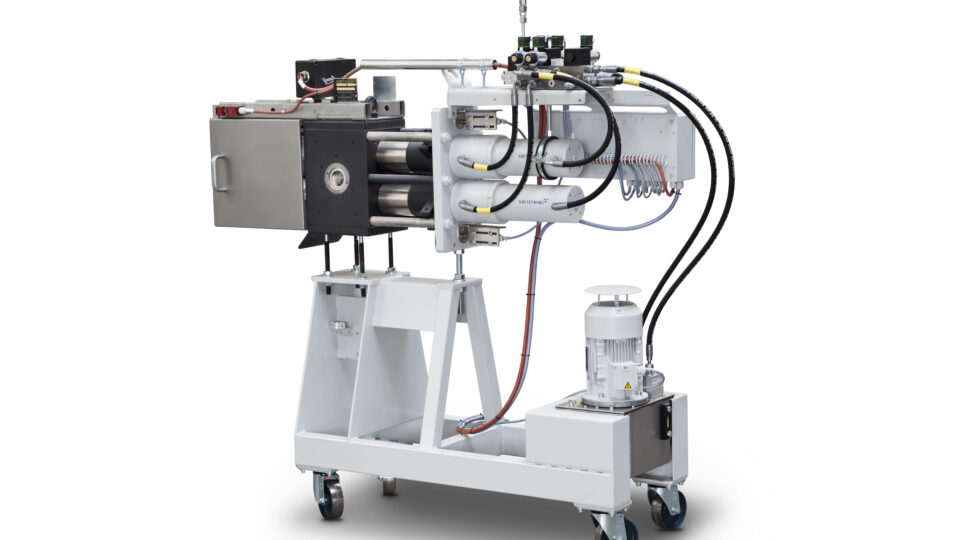
Double-piston screen changer
For light impurities. The hydraulically operated double-piston screen changer allows continuous filtration of the melt. This allows a screen change without process shutdown.
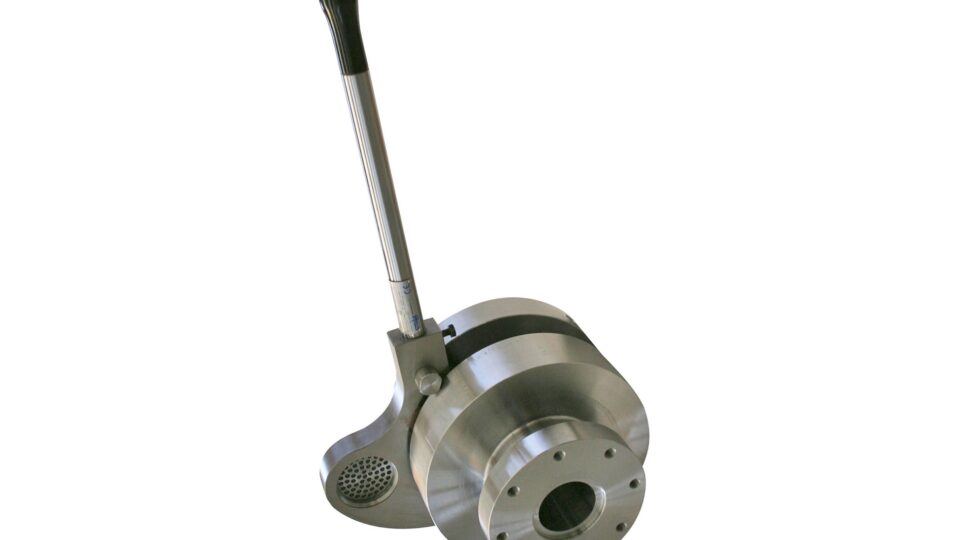
Manual screen changer
For clean, in-house production waste. Using the manual lever, two screens can be swung out alternately to allow for cleaning of the melt stream. The process is discontinuous, because the machine has to be switched off to change the screen.
Degassing
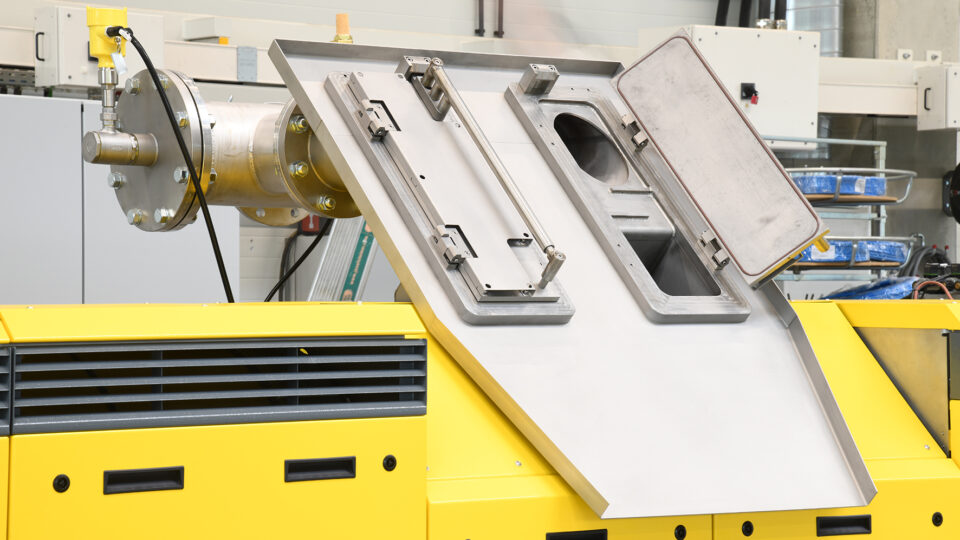
ECO-Twin 220 venting
The two process-technically connected degassing ports are equipped with generously dimensioned degassing attachments, which can be connected via a flange connection to a high-performance vacuum system. The size of the connection flange is 160 mm (Flange Type 01 PM16 / DN 150). The entire degassing system of the extruder is designed for a vacuum level of ≤ 1 mbar.
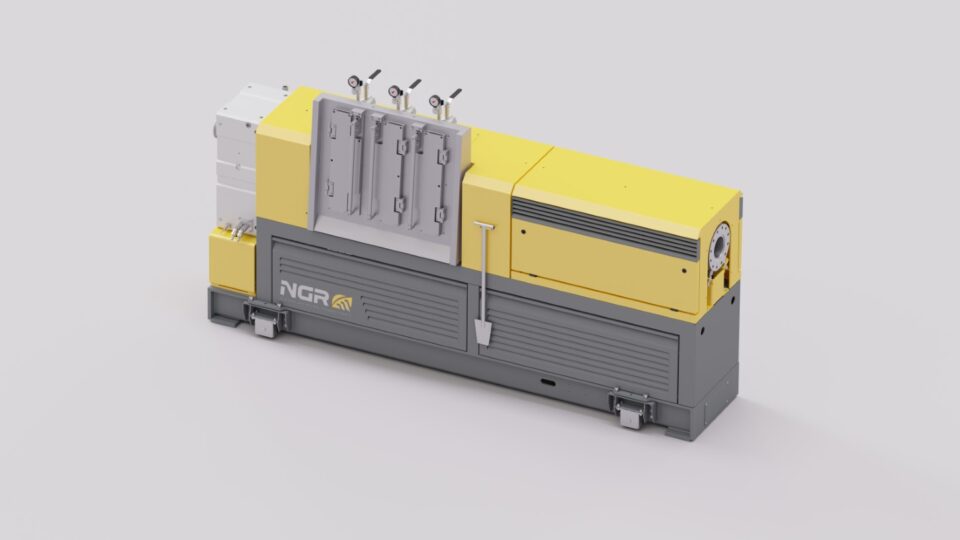
Cascade
The cascade downstream of the melt filtration is equipped with a special degassing zone (Power Venting Section). This guarantees continuous renewal of the melt surface for removing volatile impurities from the melt for highest degassing requirements.
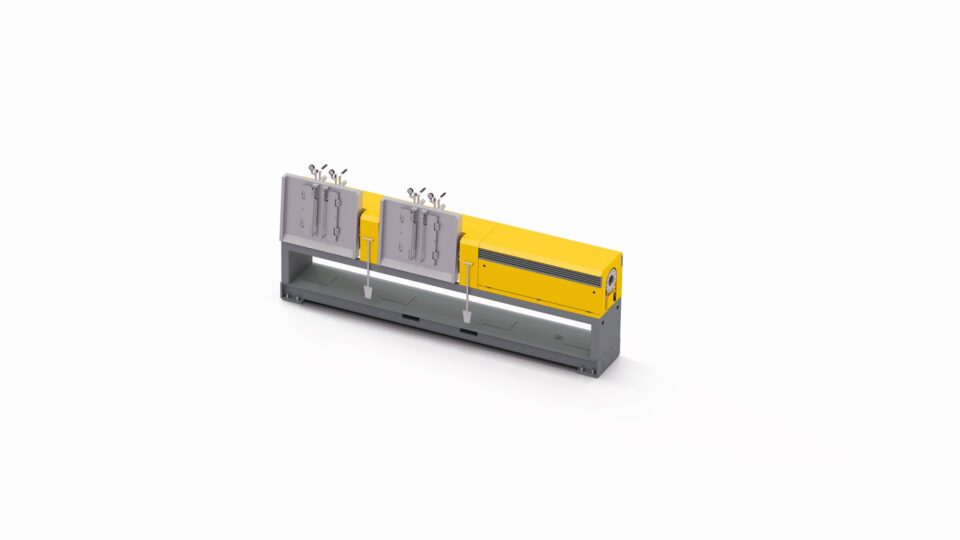
Double Venting
Designed for plastics printed, for example, on all surfaces and/or moist plastics. The simple venting unit can be supplemented by another modular unit with two venting openings and an additional vacuum pump.
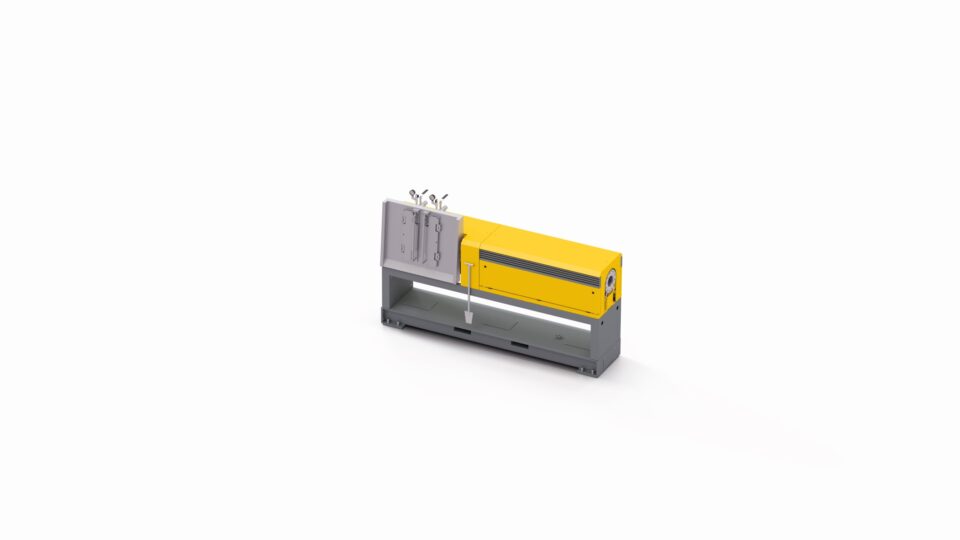
Single Venting
Designed for light printing and low humidity. The vacuum degassing system includes a vacuum pump and is connected to two venting ports on the extruder.
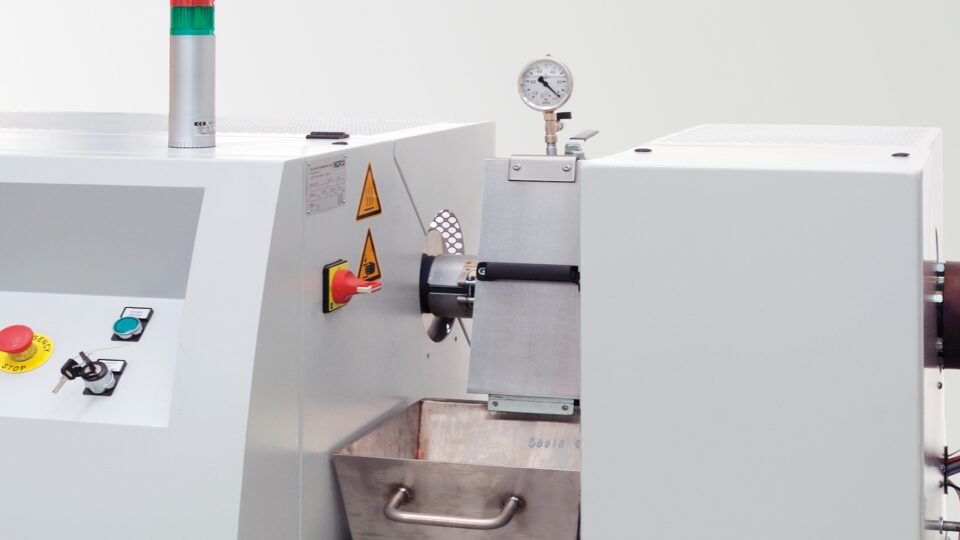
Single venting
Designed for light printing and low humidity. The vacuum degassing system includes a vacuum pump and is connected to two venting ports on the extruder.
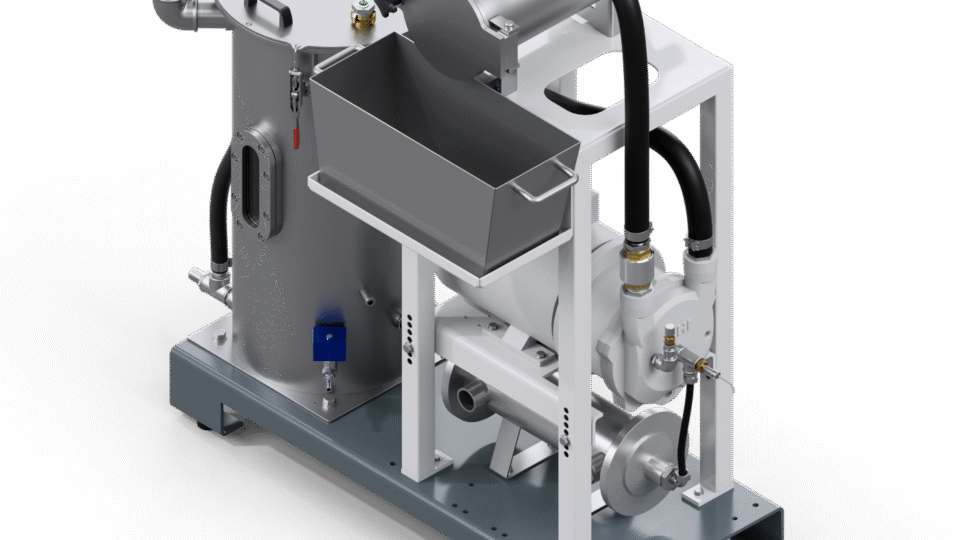
Vacuum pump with closed water circuit
Each venting combination can be equipped with a closed water circuit. The fresh water consumption at the vacuum pump is thereby reduced significantly.
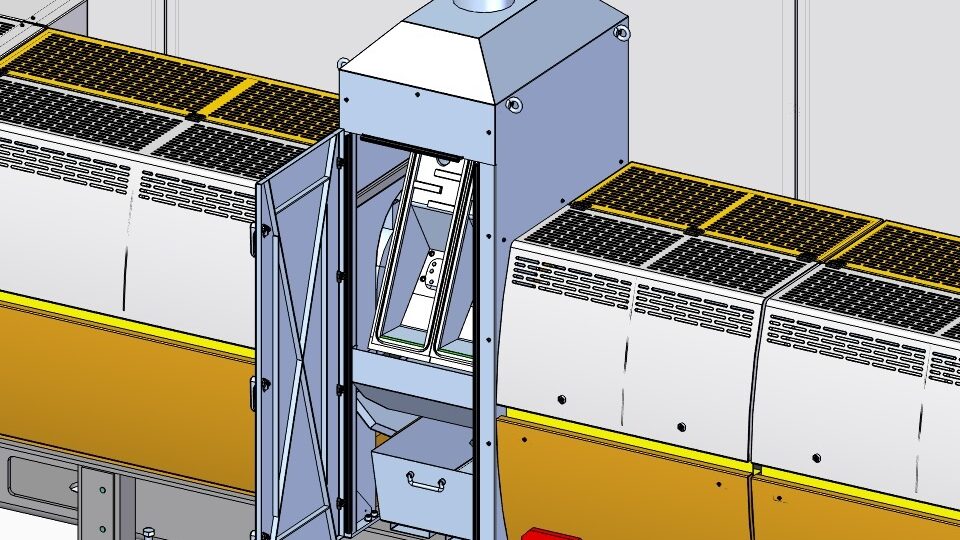
Combined venting
For damp materials, e.g. after washing, combined venting unit is used, which consists of an atmospheric and vacuum degassing unit.
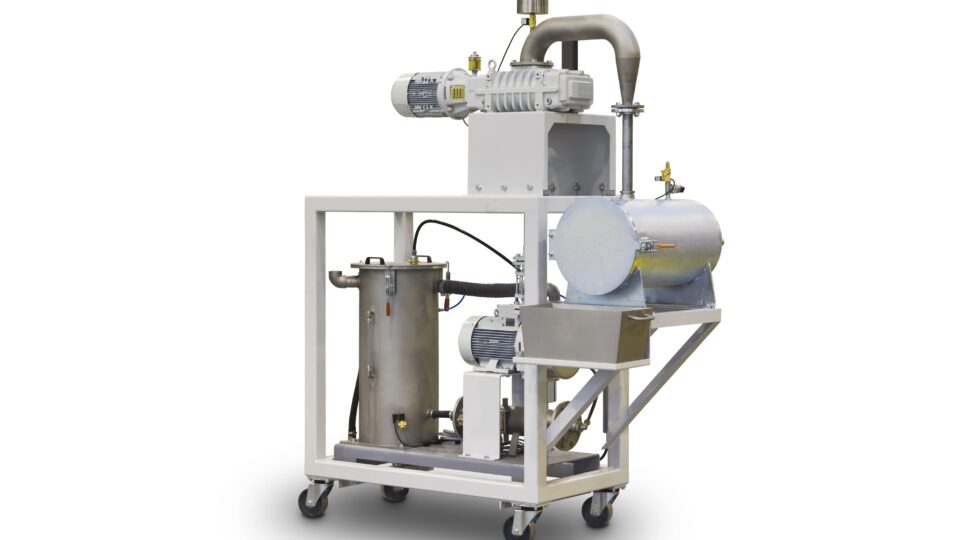
High-performance vacuum
In addition to the modular venting unit, a combination of water ring pump and high-performance vacuum pump runs in order to increase the vacuum performance (e.g. PET processing).
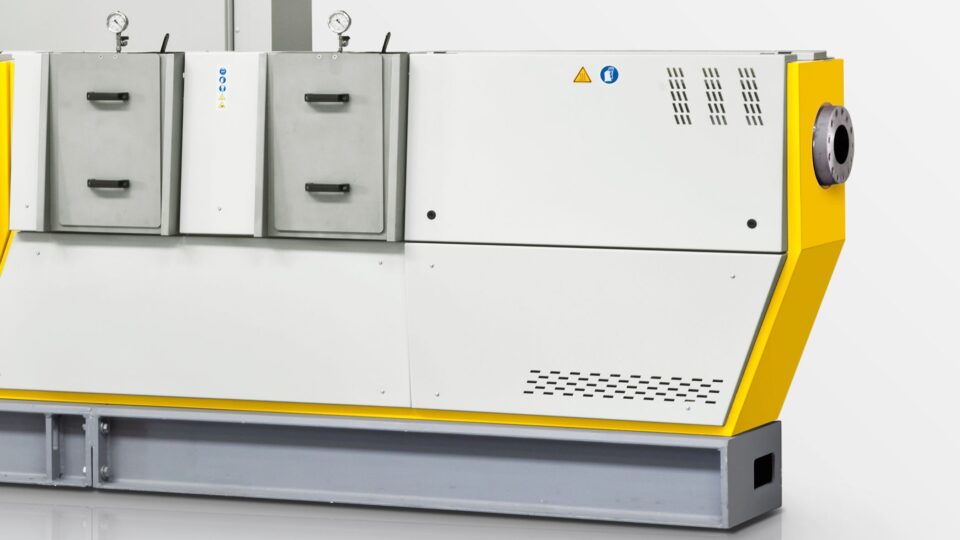
Double venting
Designed for plastics printed, for example, on all surfaces and/or moist plastics.
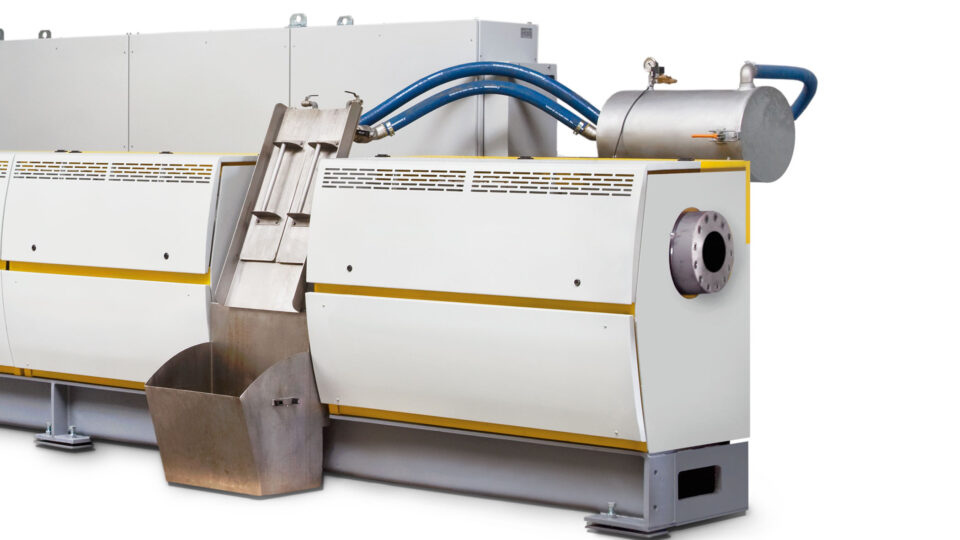
Single venting
Designed for light printing and low humidity. The vacuum degassing system includes a vacuum pump and is connected to two venting ports on the extruder.
Feed-in
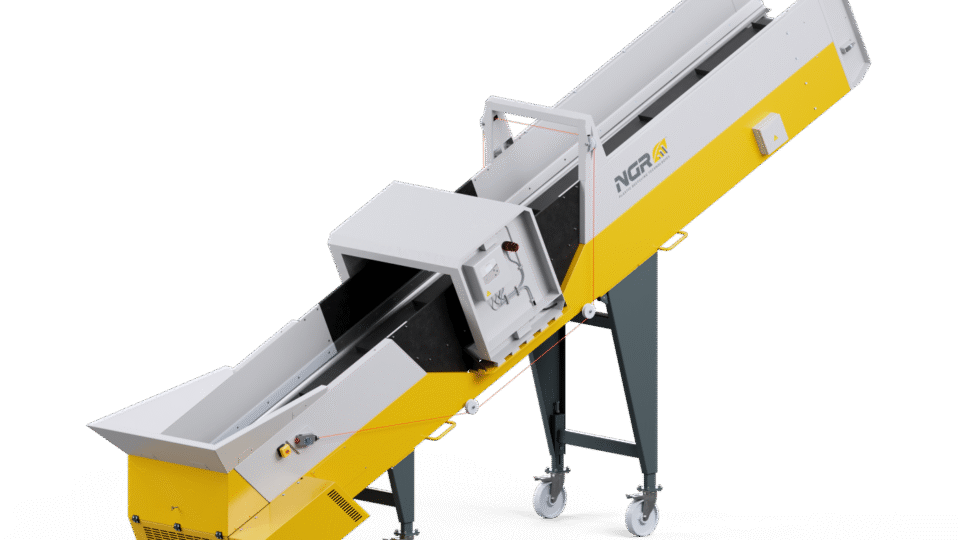
Conveyor belt
The conveyor belt transports the feed material through a metal detector into the feed hopper. The belt is stopped automatically, if metallic matter is detected in order to remove it.
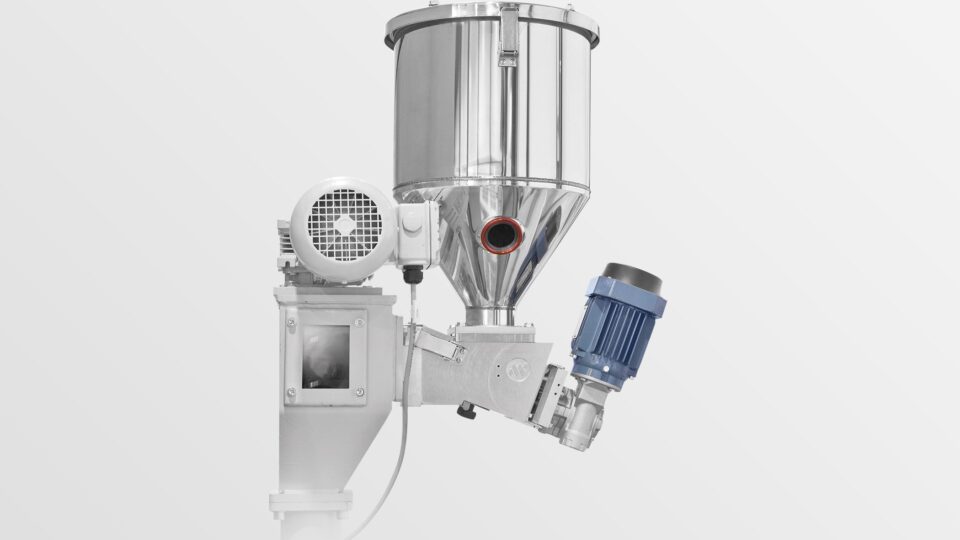
Dosing unit
Additives such as color pigments, CaCo3, compatibilizers can be added to the material flow in a process-controlled manner. Dosing systems for pellet and/or powdered additives are available.
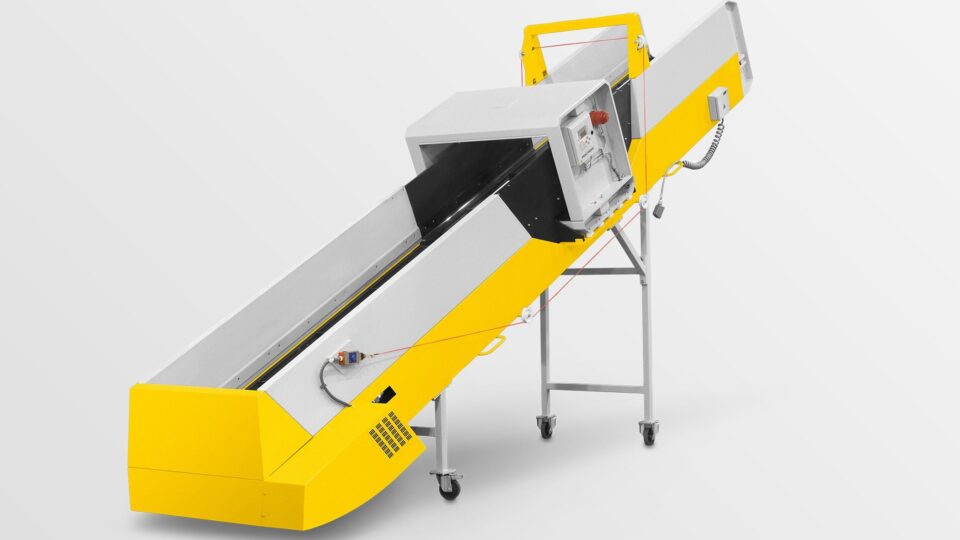
Conveyor belt
The conveyor belt transports the feed material through a metal detector into the feed hopper. The belt is stopped automatically, if metallic matter is detected in order to remove it.
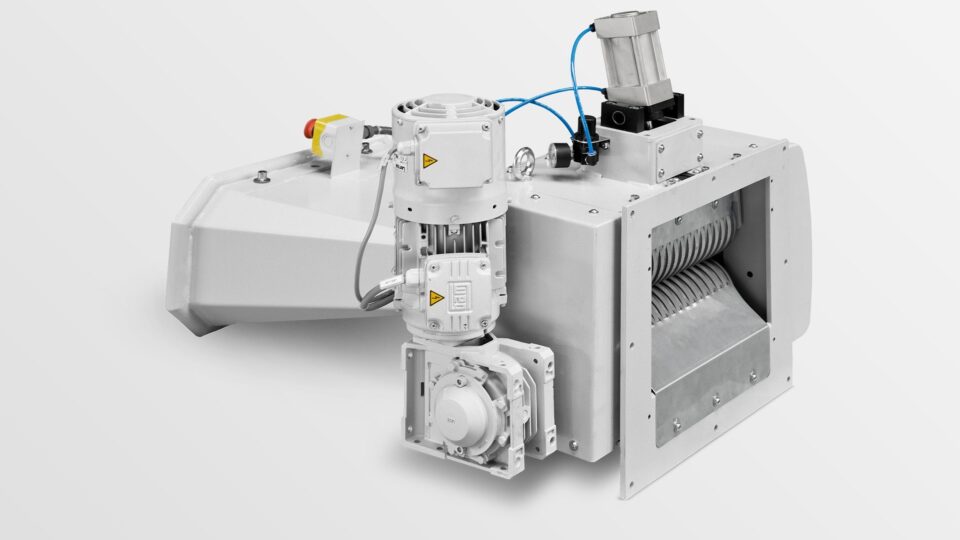
Roll Feeder
With variable feed speed, roll scrap is treated in a process-controlled manner. The virtually unmanned machine is fed continuously. The roll feeder can be operated at the same time with other types of feeding (e.g. conveyor belt).
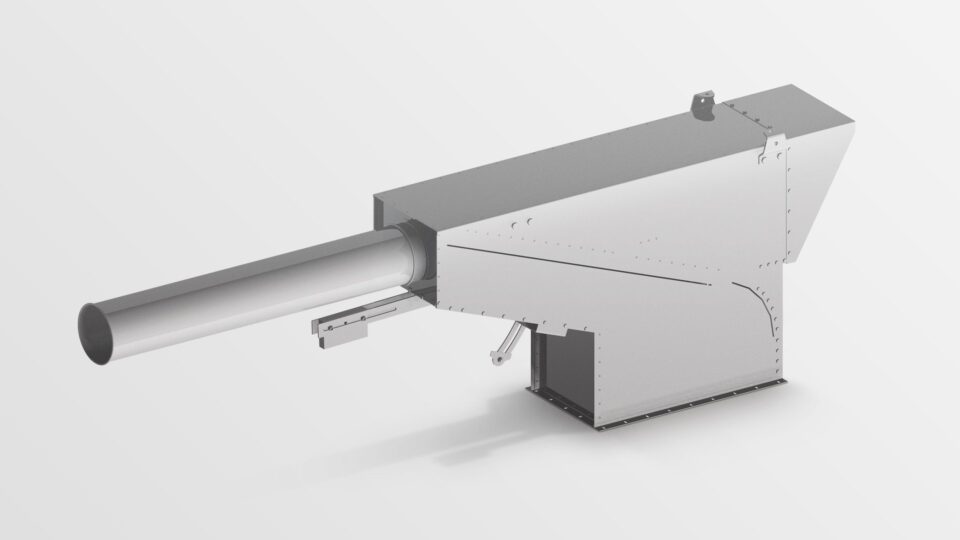
Air Seperator
The air separator is used in the production process to continuously recycle film edge trim, which is fed pneumatically into the machine. With “inline operation,” further material handling is unnecessary, and the NGR recycling machine is now fully automated.
Pelletization
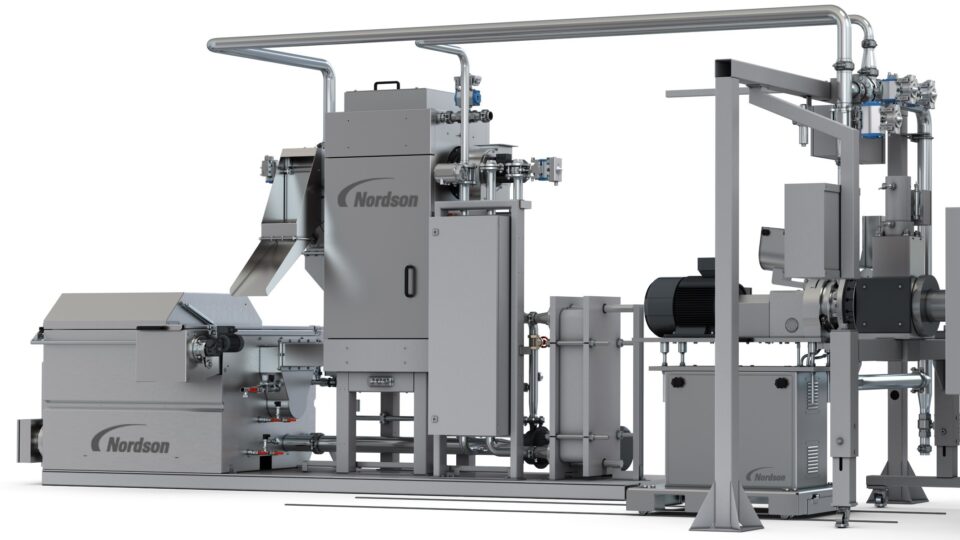
Underwater pelletizer (UWP)
For difficult-to-process (e.g. sticky) polymers or thermoplastics with a very high melt flow index. The melt emerges from the die plate and is knocked off by the pelletizer blades. The whole process takes place under water. In the centrifuge, the pellets are separated from the process water and dried.
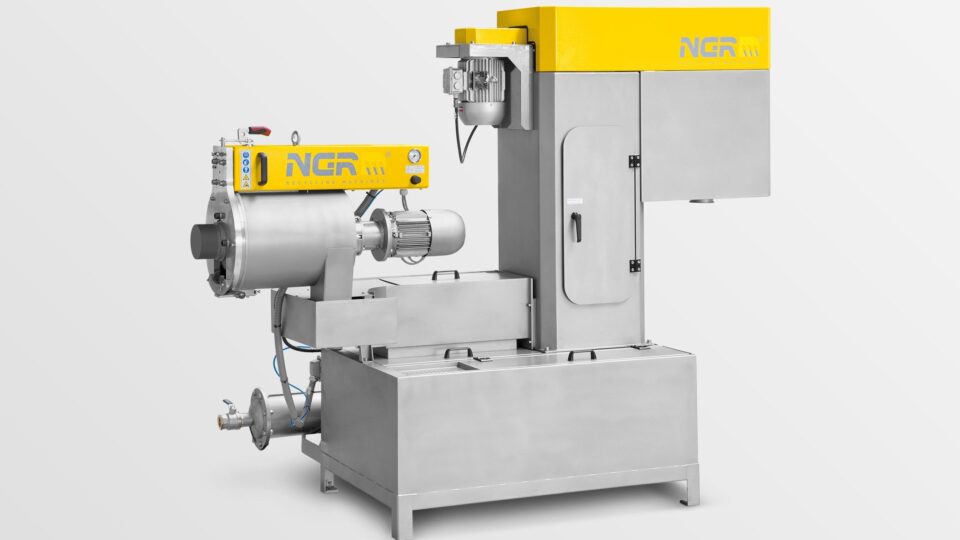
Hot-die Waterring Pelletizer (HD)
For thermoplastics with a higher viscosity. The melt exits through the wear-resistant die plate, and is knocked off by the pelletizer blades. The pellets cooled in the water ring are flushed out, dried in the centrifuge and discharged. By adjusting the blade pressure, pelletizer blades provide a long service life; replacement is quick and easy.
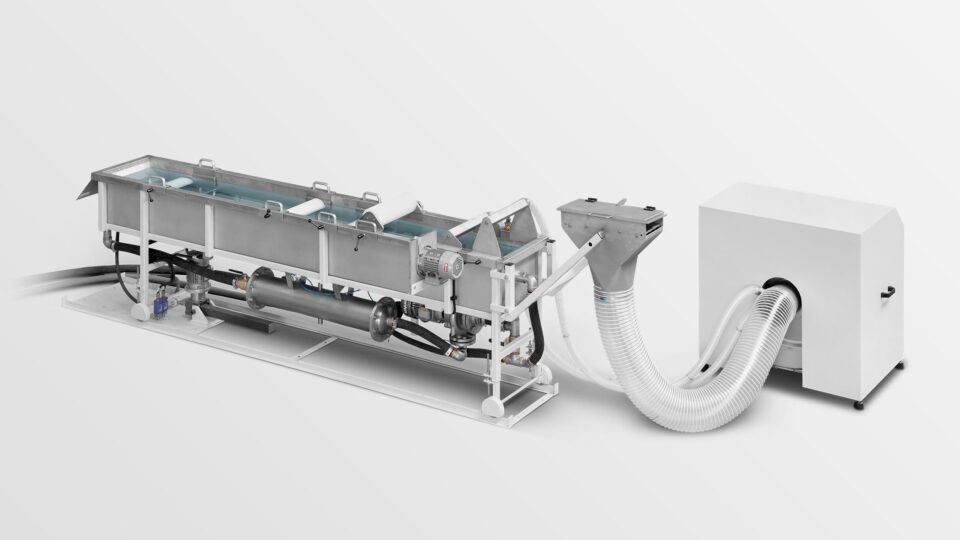
Strand pelletizer (SP)
For low-viscosity melts. The melt emerges from strand nozzles, is cooled in a water bath, dried by means of a fan and cut to the desired length in the pelletizer. The result is cylindrical, dust-free pellets with excellent mixing properties.
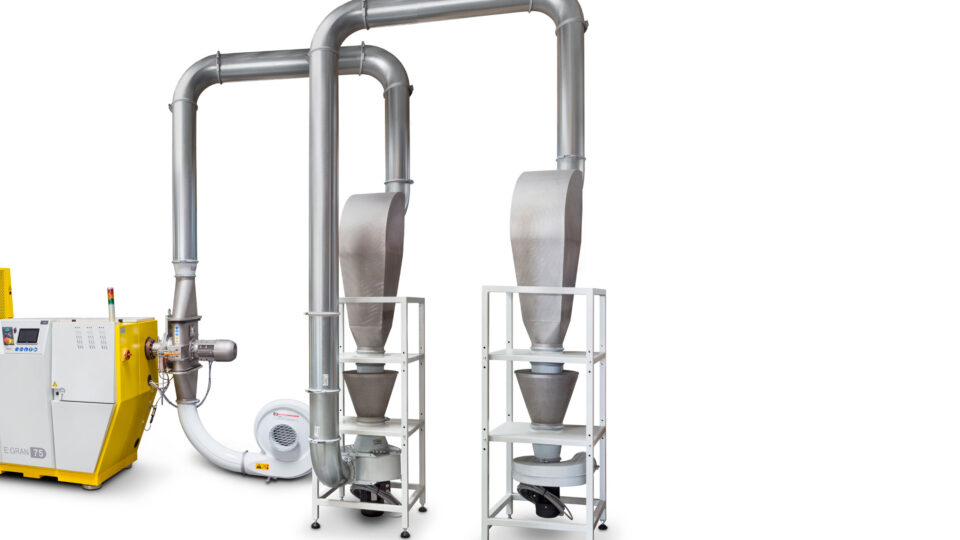
Hot die-air pelletizer
Specially designed for inline applications where water is not used. The melt exits through the wear-resistant die plate, and is knocked off by the pelletizer blades. The pellets are carried away in the air stream and cooled.
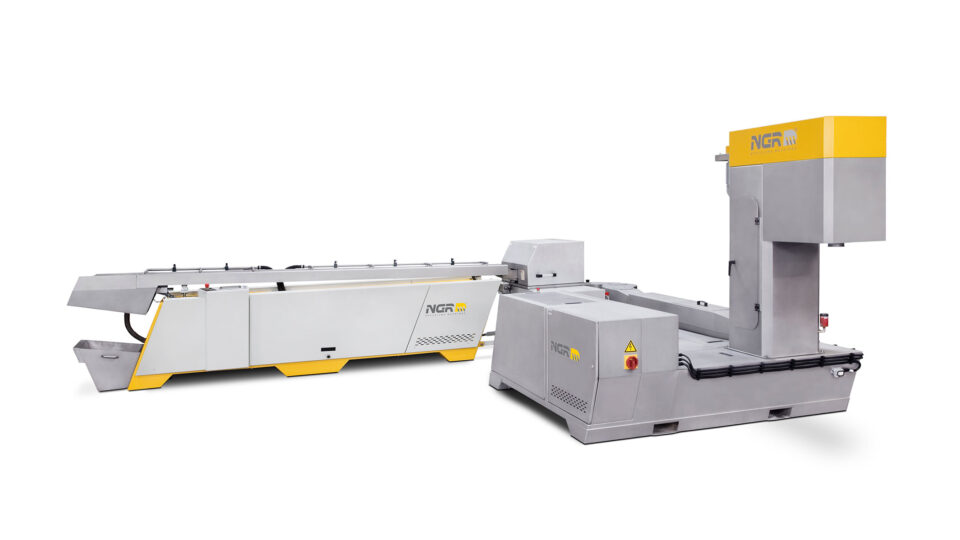
Automatic strand pelletizer (A-SP)
In addition to the benefits of the SP, the A-SP option offers the added convenience of fully automated start-up. The strands are transported automatically by a water slide to the pelletizer, and the pellets are dried in a centrifuge.
Test equipment
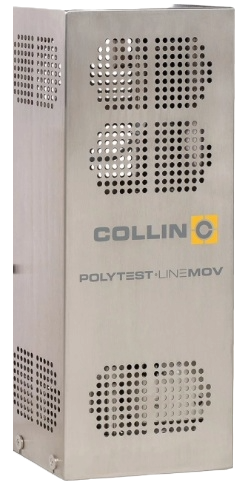
Online Viscometer
For continuous melt viscosity measurement. Melt is taken from the production extruder, the viscosity is measured, and then the melt is returned to the extruder.
Based on the differential pressure across the capillary, the viscosity of the material (IV value, MVR) is determined by means of a stored recipe.
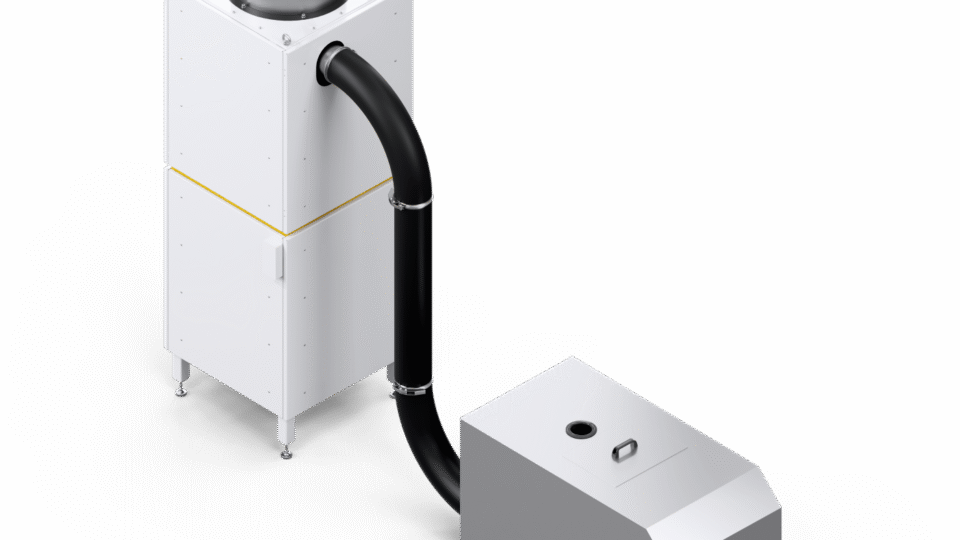
Flow scale
The throughput scale is integrated in the machine control system and displays the current production output in kg/h (lbs/hr). The data can be logged in a BDE system.
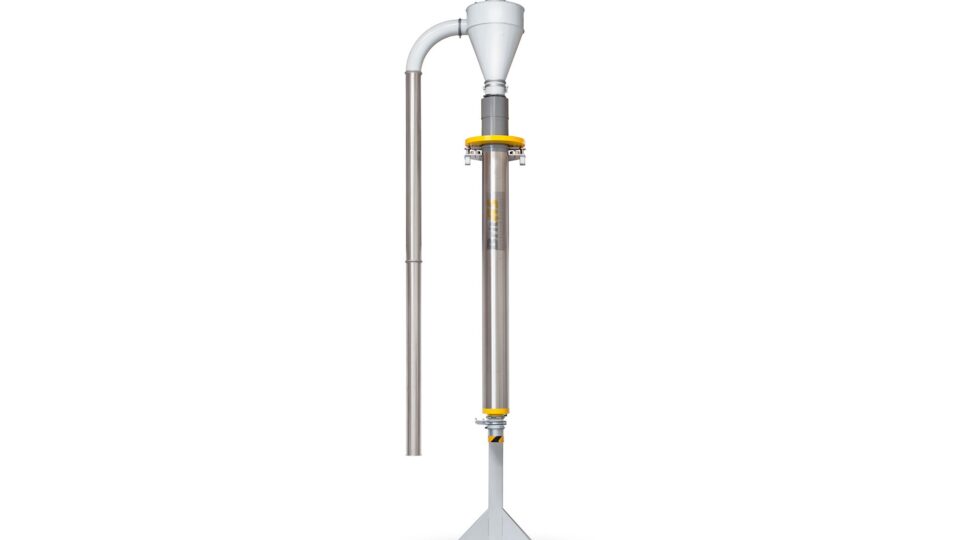
Gas control unit
This unit provides quality control by continuously measuring pellet density. Based on preset parameters, the unit determines whether to switch the gates to the second choice or to scrap when this value falls below a setpoint. Monitoring is inline and integrated continuously in the production process.


